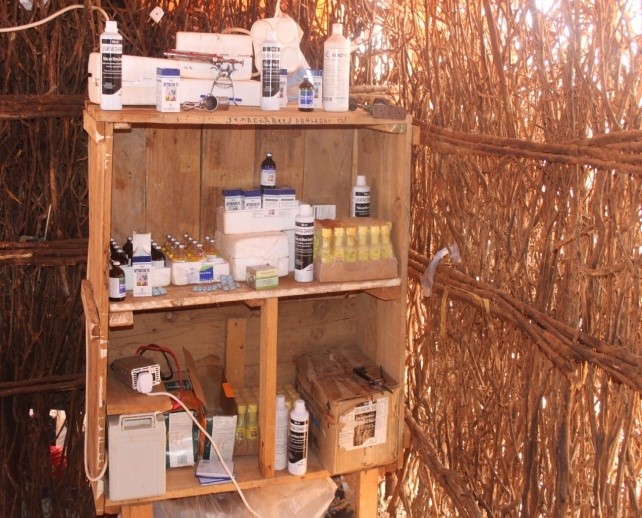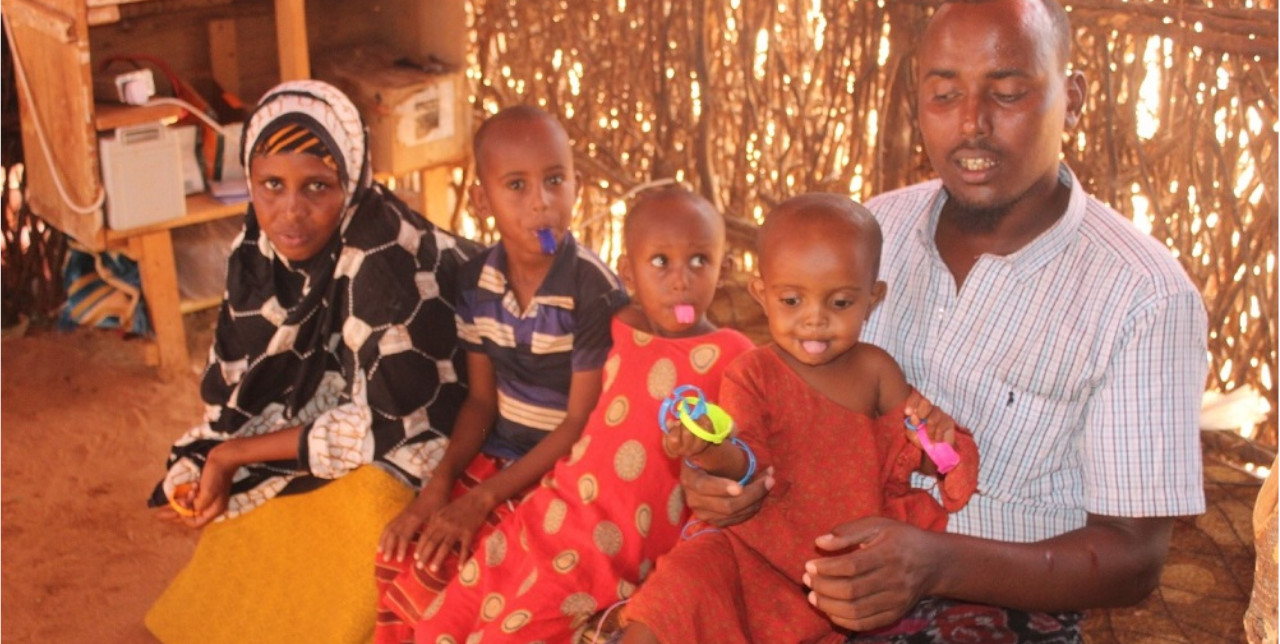11-03-2020 | di COOPI
Somalia. Enhancing resilience for agro-pastoralist families
Jamac Mohamed Mohamud, aged 38 and father of 4 children (3 females and 1 male), is a resident of Sadhumay, a village in Dollow District, situated 30 km from Dollow town, Somalia. He is one of the beneficiaries of the program “Enhancing resilience in Somalia (Phase 6)” financed by Australia Department for Foreign Assistance and Trade, implemented by COOPI in the framework of Somalia Resilience Programme (SomReP).
His village is home to around 160 agro-pastoralist families that largely depend solely on agriculture and livestock for their livelihoods. Given their dependence on rainwater and the nearby River Dawa for their survival, this makes them vulnerable to climate shocks, to the frequent droughts and flash floods which are major contributing factors to animal diseases in the village.
Jamac explains the livestock rearing problems faced in the village and says that, in the past, they had to face numerous challenges associated with livestock losses due to disease. He says: “Our village has depended on livestock rearing for generations. I have been rearing animals since I was 5 years old at my father’s farm. Our animals and farms are our main sources of livelihood and income. Over the years, seeing the losses of livestock as a result of droughts and floods made me develop a passion for animal health to try to eradicate the diseases affecting our livestock. However, the lack of knowledge on modern treatment, which is more reliable, hindered me achieving this goal. Furthermore, since I could not afford medicines, I mostly used traditional treatments which were based on plants and animals’ products. Although the methods did help in a few cases, they did little to prevent animal losses, especially during the hard times. Consequently, many livestock dependent families, including mine, were forced into debts to make ends meet for their households.”
Thanks to COOPI’s intervention in Sadhumay village and the community-based targeting, Jamac was selected to benefit from community animal health worker (CAHW) training on animal treatment and provision of a CAHWs kit. He was also trained on Business Skills Development (BDS) and Village Savings and Loans Association (VSLA) methodology where he joined a VSLA group to assist with his savings and access to loans.
He says: “Training sessions have strengthened my capacity in animal treatment and have helped to improve my business skills where I charge for animal treatment. In our last share-out from the VSLA group, I used the money to open a drugs shop which I have been able to stock with the appropriate medicines for the most rampant diseases in our village and surrounding villages. My drugs shop has attracted many customers, whom I charge $0.5 for small ruminants such as shoats, $0.7 for donkeys and $0.9 for camels. This has improved my level of income. I believe I am very fortunate”.

Jamac's drug shop
He adds: “The income has been sufficient for the family. I have been able to pay off my debts and have paid for the children’s madrassa (Islamic school). I have also saved $20 in the VSLA which will enable me to borrow more loans in future. For the rest of the community, I have noticed that the improved health of their livestock has lessened their debt burden. Some have even been able to breed and sell their livestock for income. Others say they are more food secure. It has been a win-win situation for everybody.”
“We are forever indebted to you, COOPI and SOMREP DFAT”.




 Somalia
Somalia